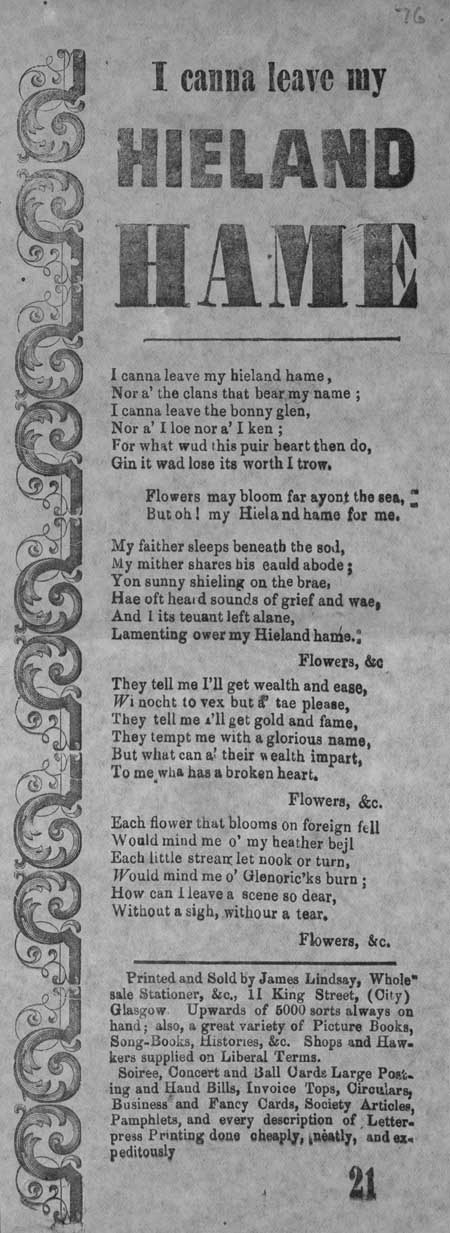Commentary
Verse 1 begins: 'I canna leave my hieland hame, / Nor a' the clans that bear my name; / I canna leave the bonny glen, / Nor a I loe nor a' I ken'. This sheet features a more decorative than illustrative woodcut border. It was published by James Lindsay of 11 King Street, Glasgow. James King is believed to have worked from 11 King Street in Glasgow for thirty years - between 1860 and 1890. It was during this time that Highlanders were being forced to leave their homes in the north and either seek work in the cities or emigrate to a new life completely. Glasgow, with its fast industrial expansion, had the greatest appeal to those seeking new lives. Perhaps the topic of this song was aimed at this section of the market. Early ballads were dramatic or humorous narrative songs derived from folk culture that predated printing. Originally perpetuated by word of mouth, many ballads survive because they were recorded on broadsides. Musical notation was rarely printed, as tunes were usually established favourites. The term 'ballad' eventually applied more broadly to any kind of topical or popular verse.
View Transcription | Download PDF Facsimile
|


